New York Soil Health
Summit
December 13, 2022, Virtual
About the Summit
On Tuesday, December 13, 2022, from 9 am-noon, we are hosting the second New York Soil Health Summit. We invite all farmers, researchers, agriculture service providers, government agencies, non-profits, and policymakers interested in advancing soil health efforts across the state.
Following the main summit, attendees are invited to continue for a workshop from 1-2 pm to contribute critical feedback on an update to the NY Soil Health Roadmap released in 2019.
Summit Agenda
Tuesday, December, 13
8:30am
Soil Health Slide Show
Feel free to join early and enjoy some New York Soil Health highlights.
If you have photos to share, please be in touch.
9:00am
Introduction to Summit
By Harold van Es, Professor of Soil and Water Management, Cornell University
Harold van Es is a Professor of Soil and Water Management with extension, research and teaching duties. He works on approaches to precision soil management, with a current emphasis on a holistic soil health management framework. Harold leads research in several long-term (20+ years) tillage experiments to evaluate the long-term impact of tillage practices and cover crops on soil health and water quality (among other research projects).
9:05am
Welcome
By Kevin King, Deputy Secretary for Food and Agriculture
Kevin King is Deputy Secretary for Food and Agriculture, Office of Governor Kathy Hochul.
9:10am
Welcome
By State Assemblymembers Donna Lupardo and Chris Tague; and State Senator Michelle Hinchey
NY State Assemblymember Donna Lupardo, Assembly Ag Chair
NY State Assemblymember Chris Tague, Assembly Ag Committee Ranker
NY State Senator Michelle Hinchey, Senate Ag Committee Chair
9:20am
Update from Agencies
By Daniel Ufnar, USDA-NRCS and Jennifer Clifford, NYS SWCC
Daniel Ufnar is the USDA-NRCS State Soil Scientist for New York.
Jennifer Clifford is the program manager for the New York State Department of Agriculture and Markets and NYS Soil and Water Conservation Committee’s Climate Resilient Farming Program.
9:30am
Cornell University College of Agriculture & Life Sciences Initiatives
By Julie Suarez, Cornell University
Julie Suarez is the Associate Dean for Land-Grant Affairs in the College of Agriculture & Life Sciences at Cornell University. Her responsibilities include strengthening the connections between New York’s Land-Grant college, policymakers and the community at large. In her role, she is committed to bringing science-based knowledge relating to food, agriculture, and life sciences into the public domain. She’s been engaged in several initiatives undertaken by the college, including the establishment of a Center of Excellence in Food and Agriculture Innovation and the Institute of Food Safety at Cornell AgriTech, the New York Hemlock Woolly Adelgid project, the New York State Soil Health and Resiliency Program, the Cornell Small Farms FarmOps and Equitable Farm Futures program, and the visionary expansion of two flagship outreach programs, Cornell PRO-DAIRY and the New York State Integrated Pest Management Program.
9:40am
New York Soil Health 2022: What have we learned and done?
By Harold van Es, Joseph Amsili, Debbie Aller, Matt Ryan
Review 2019 Roadmap: Harold van Es, Professor (Cornell University)
Research Findings and Outreach: Joseph Amsili, Extension Associate and Program Coordinator (Cornell University)
Research Findings and Outreach: Debbie Aller, Extension Associate and Program Coordinator (Cornell University)
Research Findings and Outreach: Matt Ryan, Associate Professor (Cornell University)
10:20-10:25am
Break
10:25am
Research—Lightning Talks
By Jenny Kao-Kniffin, Greg Peck, Virginia Moore, Louis Longchamps
Microbial ecology of urban agricultural soils in New York City
Presenter: Jenny Kao-Kniffin, Associate Professor in the School of Integrative Plant Science Horticulture Section (CALS) at Cornell University and an Associate Director for Cornell Cooperative Extension.
Summary: New York City is home to one of the oldest urban agricultural communities in the United States. It provides a model system to study an age gradient of urban agricultural soils and how soils change over time. We conducted research on nine farms across multiple boroughs in 2020 to assess soil microbial diversity and function across one- to 25-yr old sites. We found a distinct pattern in the composition of soil bacteria and fungi from young to old sites, with detailed metagenomic data indicating a shift in carbon utilization. Soil respiration data support a consistent pattern in microbial activity that show decreasing atmospheric carbon dioxide emissions from soils of older sites. The results reveal an ecological shift in microbial carbon use strategy that could be unique in urban agricultural systems.
Orchard soil health
Presenter: Greg Peck, Associate Professor in the School of Integrative Plant Science Horticulture Section (CALS) at Cornell University
Summary: Like annual cropping systems, improving orchard soil health has many ecosystem and production benefits. However, perennial fruit-tree systems have different soil requirements than annual crops with fewer opportunities to make interventions, such as incorporating organic matter near the root systems. Applying wood chip mulches in the tree row is one approach that can improve soil health and reduce weed competition, but yields are not always improved. In this presentation I will provide an update on the challenges of developing soil health practices for perennial tree fruit systems.
Opportunities in plant breeding for soil health
Presenter: Virginia Moore, Assistant Professor, School of Integrative Plant Science Plant Breeding and Genetics Section (CALS) at Cornell University
Summary: Plant breeding has potential to improve soil health outcomes by developing varieties that improve soil health, or by improving farmers’ ability to adopt soil health-promoting practices. This talk will provide updates on projects related to plant breeding and soil health in forages, cover crops, and perennial grains.
Supporting NY State farmers in their experimentation towards soil health
Presenter: Louis Longchamps, Assistant Professor of Digital Agronomy at Cornell University
Summary: The majority of farmers experiment to adopt new tools, techniques, and inputs. This endogenous process allows them to convert generic knowledge emerging from conventional research as well as original ideas into contextualized implementation on their farm. While digital agronomy tools (i.e., large database, contextualization layers, and adapted analytics) are used in conventional research, farmers seldom use those for experimentation. In order to adopt soil health practices, farmers will have to experiment with and adapt new practices on their farms. Supporting farmer-led on-farm experimentation with digital agronomy has the potential to accelerate the transition towards sustainable crop production.
11:05am
Farmer Panel
With Zaid Kurdieh, Dale Stein, Suzanne Hunt and moderated by Michael Glos
Norwich Meadows Farm – Zaid Kurdieh
Zaid Kurdieh, a Norwich Meadows Farm managing partner, has amassed more than 35 years working in the agriculture industry in different capacities, including working for the USDA and Cornell Cooperative Extension. In 1998, Kurdieh and his partners decided to start Norwich Meadows Farm to produce and provide certified organic fruits and vegetables to the market. What began as a two-acre farm has grown into a 230+ acre business, with 180 high tunnels and 50+ employees. During peak season, Norwich Meadows Farm is present at eleven farmer’s markets each week, has 600+ CSA members, and supplies more than 200 high-end restaurants in addition to wholesale customers.
Stein Farms – Dale Stein
Dale Stein is a senior partner at Stein Farms. His brother, son, niece and nephew are also partners. They milk 1000 cows and have 860 young stock. They work a total of 2400 acres of which 400 are double cropped. Dale is also chair of the New York State Soil and Water Conservation Committee.
Suzanne Hunt – Hunt Country Vineyards
Suzanne Hunt is Co-Owner of Hunt Country Vineyards, her family’s seventh generation farm and 41-year-old winery in the Finger Lakes. She is also Director of Policy for Generate Capital, PBC which finances, builds, owns, and operates sustainable infrastructure projects globally. She serves in many advisory roles including the Agriculture and Forestry Advisory Panel to the NY Climate Action Council and for Cornell AgriTech. At the winery Suzanne has spearheaded a multitude of sustainability and climate (mitigation, adaptation, and resilience) efforts.
11:35am
Updates from NYS Partners
By Scenic Hudson, NOFA-NY, American Farmland Trust, NY Farm Bureau
Pete Lopez, Executive Director of Policy, Advocacy and Science, Scenic Hudson
Presentation topic: Through science and collaboration, the Northeast Carbon Alliance brings together land managers, scientists and public policy experts to realize the great power of natural climate solutions to combat climate change from Mountain Top to Ocean Floor in the Hudson Valley, New York, Northeastern States, and beyond. Pete Lopez, Executive Director of Policy, Advocacy and Science for Scenic Hudson will summarize NECA’s work to promote soil health through federal and state policy, and establish a baseline of information to inform the promotion of regenerative agriculture, sustainable forest management, and blue carbon.
Katie Baildon, Policy Coordinator, Northeast Organic Farming Association of New York (NOFA-NY)
Presentation topic: Healthy soils are the foundation of sustainable, regenerative, organic farming and gardening. NOFA-NY’s soil health programming provides technical assistance to organic producers, educates farmers and gardeners on building healthy soils, and advocates for state and federal policies and funding that support land stewardship, carbon sequestration, and healthy waterways. NOFA-NY is also a member of the National Healthy Soils Policy Network, a group of farmer-centered organizations that advocate for state and federal policies on behalf of sustainable, organic, beginning, underserved and family farmers.
Bianca Moebius-Clune, Climate Initiative Director, American Farmland Trust (AFT)
Presentation topic: American Farmland Trust, as a national non-profit, takes a holistic approach to agriculture, focusing on the land itself, the agricultural practices used on that land, and the farmers and ranchers who steward the land. AFT is committed to empowering U.S. agriculture to become climate neutral. To do so, we are elevating the role of farmers, ranchers, and the land they manage in adapting to and mitigating the effects of climate change. In New York and nationally AFT engages in policy and thought leadership, coalition building, training influencers, research and on-the-ground demonstration projects. We are working to scale up the adoption of diverse, climate-smart, and soil health-promoting agricultural systems, integration of smart solar, and protection of farmland, to ensure a prosperous, equitable, and resilient future for farmers, the land that sustains us, and society.
Jeff Williams, Director of Public Policy, New York Farm Bureau (NYFB)
Presentation topic: New York Farm Bureau has been a leader in agricultural environmental management, including successfully advocating for soil health and other environmental funding programs in the state budget. New York Farm Bureau also has a role on New York’s Agricultural and Forestry Technical Group as part of the enacted Climate Leadership and Community Protection Act.
11:55am
Closing Remarks
By Julie Suarez, Associate Dean for Land-Grant Affairs, College of Agriculture & Life Sciences, Cornell University
12:00 - 1:00pm
Lunch Break
Take a Zoom break and rejoin us at 1:00 pm to provide input on several topics related to Soil Health
1:00-2:00pm
New York Soil Health Roundtable Discussions – Breakout Groups
Discussions on topics (including voluntary soil health standards, management opportunities in rural and urban environments, organic systems, circular economy, payment for ecosystem services) in breakout groups
Breakout group session recorders will be asked to report out key points from their respective topics.
Concurrent Breakout Group Topics
- Voluntary Standards for Soil Health and Quality. Moderator: Joseph Amsili
Proposed standards that are reflective of different geographic regions, soil types, and farming operations. Link to section 151-n.2 of SH&CR Act on promoting best management practices for soil resiliency. Policy considerations and adoption as part of AEM and other frameworks.
- Crop Production Systems and Management Opportunities in Rural Environments. Moderator: Harold van Es
New knowledge and opportunities. Expanding audiences and initiatives to enhance adoption.
- Crop Production Systems and Management Opportunities in Urban Environments. Moderator: Perl Egendorf
New knowledge and opportunities. Expanding audiences and initiatives to enhance adoption.
- Organic Systems. Moderator: Matt Ryan
Successes and challenges with certified organic farming systems.
- Circular Economy. Moderator: Debbie Aller
Cycling of bionutrients as soil amendments and their role in improving soil health and mitigating climate impacts. Nutrient management to reduce greenhouse gases. Water quality.
- Payment for Ecosystem Services. Moderators: Michael Glos and Jenna DeRario
Incentive and carbon credit programs that are scientifically sound, achievable, and equitable. C removal vs. emission reductions.
Summit Speakers
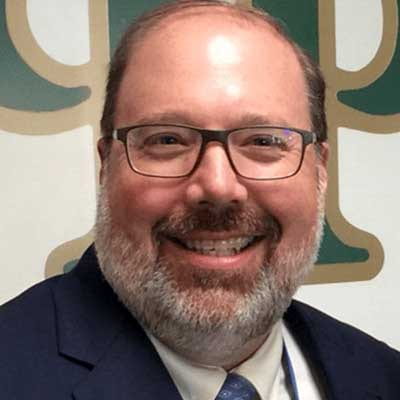
Kevin King, Deputy Secretary for Food and Agriculture
Kevin King is Deputy Secretary for Food and Agriculture, Office of Governor Kathy Hochul. Before that, he served with the NYS Department of Agriculture and Markets in various positions and as the President & CEO of the Empire State Forest Products Association
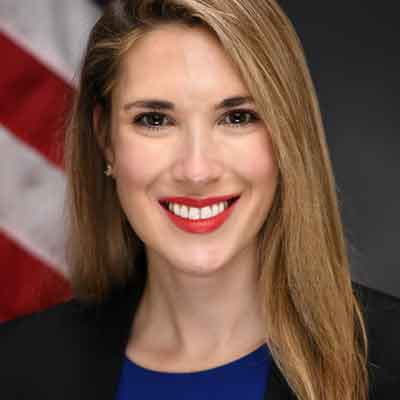
NYS Senator Michelle Hinchey
State Senator Michelle Hinchey represents the 46th Senate District that includes all of Greene and Montgomery Counties and parts of Ulster, Schenectady, and Albany Counties. Senator Hinchey serves as Chair of the Senate Agriculture Committee.
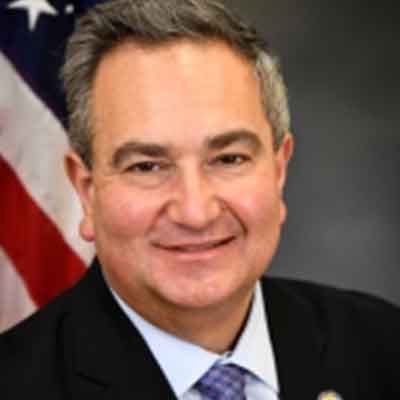
NYS Senator George Borrello (invited)
State Senator George Borrello represents the 57th Senate District tha includes Allegany, Cattaraugus and Chautauqua counties plus eight towns in Livingston County. Senator Borrello serves as Ranking Member of the Senate Agriculture Committee.
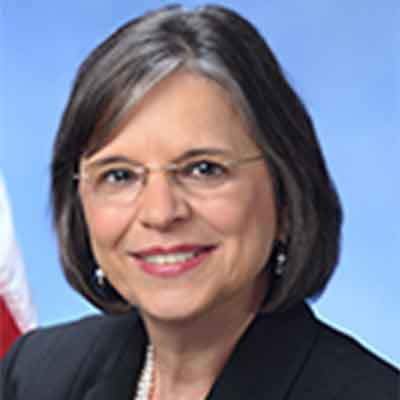
NYS Assemblymember Donna Lupardo
State Assemblymember Donna Lupardo represents the 123rd Assembly District which includes the city of Binghamton and the towns of Vestal and Union. Assemblymember Lupardo serves as Chair of the Assembly Agriculture Committee.
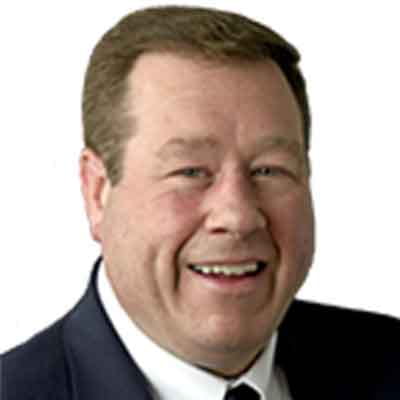
NYS Assemblymember Chris Tague
State Assemblymember Chris Tague represents the 102nd Assembley District that includes of all of Greene and Schoharie counties, along with parts of Delaware, Columbia, Albany, Otsego and Ulster counties. Assemblymember Tague serves as Ranking Member of the Assembly Agriculture Committee.
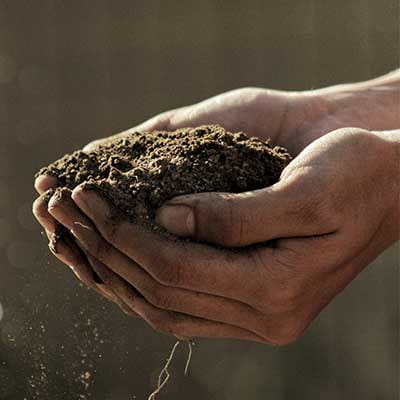
Daniel Ufnar, State Soil Scientist for NRCS in NY
State Soil Scientist Daniel Ufnar provides leadership on soil survey, wetland designation, dynamic soil property, and more for NYS.
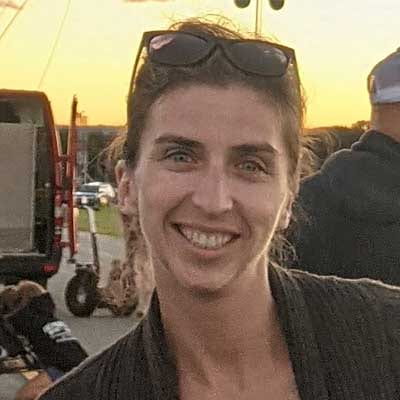
Jennifer Clifford, NYS Dept of Ag & Markets
Jennifer Clifford is the program manager for the New York State Department of Agriculture and Markets and NYS Soil and Water Conservation Committee’s Climate Resilient Farming Program. Guiding 58 County Soil and Water Conservation Districts, the Conservation committee also administers the state’s Agricultural Environmental Management, Agricultural Nonpoint Source Abatement and Control, and the State Aid to Soil and Water Conservation Districts programs.
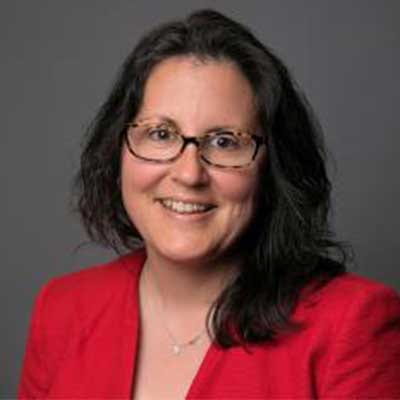
Julie Suarez, Cornell University
Julie Suarez is the Associate Dean for Land-Grant Affairs in the College of Agriculture & Life Sciences at Cornell University. Her responsibilities include strengthening the connections between New York’s Land-Grant college, policy makers and the community at large. In her role, she is committed to bringing science-based knowledge relating to food, agriculture, and life sciences into the public domain. She’s been engaged in several initiatives undertaken by the college, including the establishment of a Center of Excellence in Food and Agriculture Innovation and the Institute of Food Safety at Cornell AgriTech, the New Yok Hemlock Woolly Adelgid project, the New York State Soil Health and Resiliency Program, the Cornell Small Farms FarmOps and Equitable Farm Futures program, and the visionary expansion of two flagship outreach programs, Cornell PRO-DAIRY and the New York State Integrated Pest Management Program.
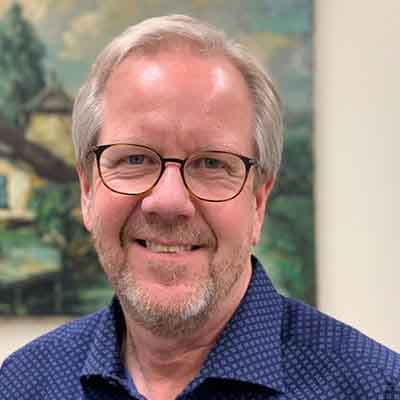
Harold van Es, Cornell University
Harold van Es is a Professor of Soil and Water Management with extension, research and teaching duties. He works on approaches to precision soil management, with a current emphasis on a holistic soil health management framework. van Es leads research in several long-term (20+ years) tillage experiments to evaluate the long-term impact of tillage practices and cover crops on soil health and water quality (among other research projects).
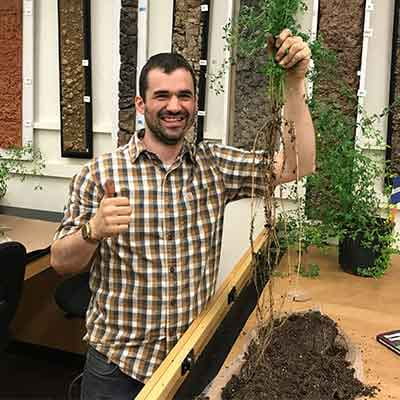
Joseph Amsili, Cornell University
Joseph Amsili is an extension associate and program coordinator with the Cornell Soil Health Program and New York Soil Health Initiative. He works to coordinate and support soil health extension activities across New York State, including the 2022 Soil Health and Climate Resiliency Field Day series and the NY Soil Health Specialist Training Series. In 2020, Amsili and others completed the Characterization of Soil Health in NYS Reports, and is working on efforts to conduct more regional analyses. He is currently working on assessing soil organic carbon sequestration rates at four long-term tillage and cropping systems experiments across New York State.
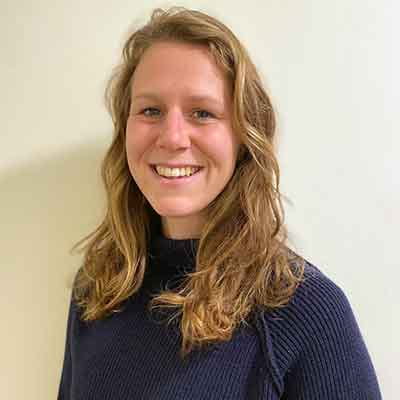
Debbie Aller, Cornell University
Debbie Aller is an extension associate and program coordinator with the Cornell Soil Health Program and New York Soil Health Initiative. She conducts and coordinates extension and applied research activities across NYS that support and improve soil health. She brings her expertise working with vegetable, fruit, and nursery growers to implement sustainable soil management practices and has an in-depth research background in biochar and other organic amendments.
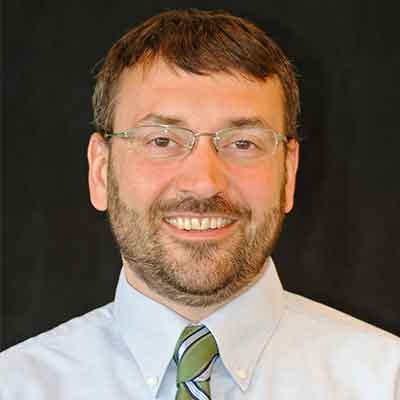
Matt Ryan, Cornell University
Matthew Ryan is an Associate Professor of Sustainable Cropping Systems in the Soil and Crop Sciences Section of the School of Integrative Plant Science (CALS) at Cornell University. He works with farmers, students, and other scientists to evaluate cropping system performance in terms of crop yield, profitability, environmental impact, and resilience.
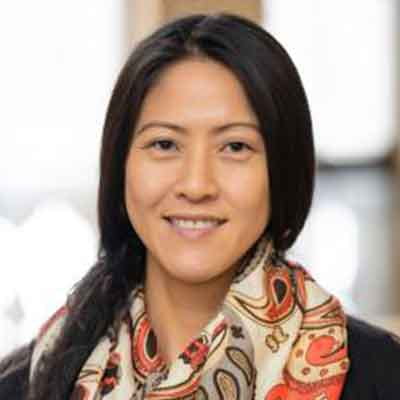
Jenny Kao-Kniffin, Cornell University
Jenny Kao-Kniffin is an Associate Professor in the Horticulture Section of the School of Integrative Plant Science at Cornell University and an Associate Director for Cornell Cooperative Extension. Kao-Kniffin received her PhD in Land Resources from the University of Wisconsin-Madison in Soil Microbial Ecology. She started her position at Cornell in 2010 focusing on horticultural landscapes and production systems that include turfgrass, landscapes, and now urban agriculture.
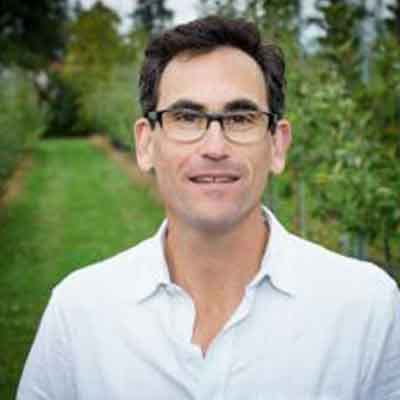
Greg Peck, Cornell University
Greg Peck is an Associate Professor in the School of Integrative Plant Science Horticulture Section (CALS) at Cornell University.
Peck’s research seeks to improve the long-term economic and environmental viability of commercial tree-fruit growers. Current projects focus on hard cider orchard physiology and fruit biochemistry, precision apple crop load management through the use of a pollen tube growth model, and orchard soil health. He also regularly interacts with commercial growers, Cornell Cooperative Extension educators, farm consultants, associated industry representatives, Master Gardeners, and homeowners.
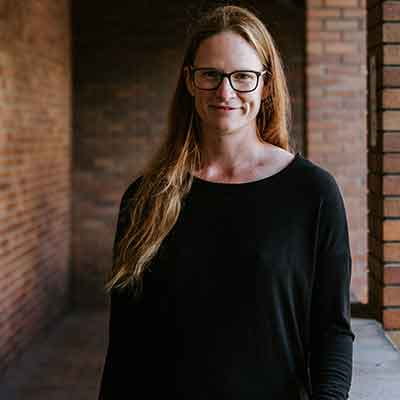
Virginia Moore, Cornell University
Virginia Moore is an Assistant Professor, School of Integrative Plant Science Plant Breeding and Genetics Section (CALS) at Cornell University. Moore is a plant breeder and agroecologist working on a range of species including forages, cover crops, and perennial grains. Her lab works to develop plants better adapted to sustainable cropping systems.
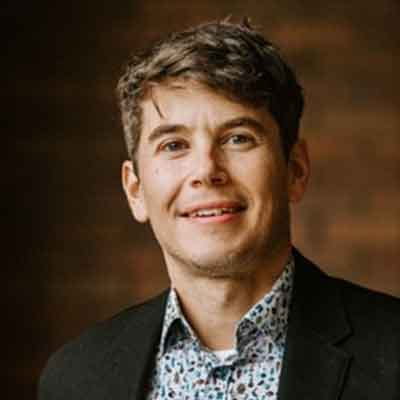
Louis Longchamps, Cornell University
Louis Longchamps is an Assistant Professor of Digital Agronomy at Cornell University with a background in precision agriculture. He explores the potential of observational research and farmer-led on-farm experimentation enhanced by digital agronomy to accelerate the transition towards sustainable food production. Longchamps is the current chair of the On-Farm Experimentation Community of the International Society of Precision Agriculture.
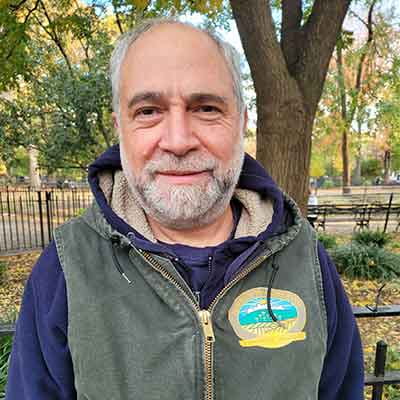
Zaid Kurdieh, Norwich Meadows Farm
Zaid Kurdieh, managing partner of Norwich Meadows Farm has amassed more than 35 years working in the agriculture industry in different capacities including working for the USDA and Cornell Cooperative Extension. In 1998, Kurdieh and his partners decided to start Norwich Meadows Farm to produce and provide certified organic fruits and vegetables to the market. What started as a two acre farm has grown into a 230+ acre business, with 180 high tunnels and 50+ employees. During peak season, Norwich Meadows Farm is present at eleven farmer’s markets each week, has 600+ CSA members and supplies more than 200 high-end restaurants in addition to wholesale customers.

Dale Stein, Stein Farms
Dale Stein is a senior partner at Stein Farms. His brother, son, niece and nephew are also partners. They milk 1000 cows and have 860 young stock. They work a total of 2400 acres of which 400 are double cropped. Stein is also chair of the New York State Soil and Water Conservation Committee.

Suzanne Hunt, Hunt Country Vineyard
Suzanne Hunt is Co-Owner of Hunt Country Vineyards, her family’s seventh generation farm and 41-year-old winery in the Finger Lakes. She is also Director of Policy for Generate Capital, PBC which finances, builds, owns, and operates sustainable infrastructure projects globally. She serves in many advisory roles including the Agriculture and Forestry Advisory Panel to the NY Climate Action Council and for Cornell AgriTech. At the winery Suzanne has spearheaded a multitude of sustainability and climate (mitigation, adaptation, and resilience) efforts.

Michael Glos, Cornell University
Michael Glos recently joined the New York Soil Health team and supports extension and applied research activities across NYS that support and improve soil health. He brings his expertise of 20+ years of applied sustainable agricultural research and outreach along with knowledge gained from operating a diverse certified organic farm since 1997.
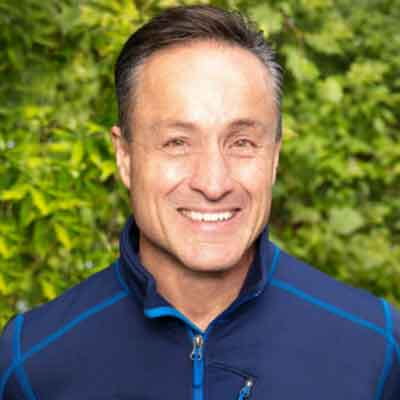
Pete Lopez, Scenic Hudson
Pete Lopez is the Executive Director of Policy, Advocacy and Science. Lopez oversees the operations of Scenic Hudson’s Policy, Advocacy and Science, Climate and Stewardship teams. He previously served as special assistant for Climate and Renewable Energy to the New York State Commissioner of Agriculture & Markets, administrator of US EPA Region 2, and as a member of the NYS Assembly

Katie Baildon, NOFA-NY
Katie Baildon is the Policy Coordinator at the Northeast Organic Farming Association of New York (NOFA-NY). Baildon leads NOFA-NY’s state and federal policy advocacy efforts, coordinates the member-led policy committee, and develops educational and advocacy opportunities for members of the NOFA-NY community
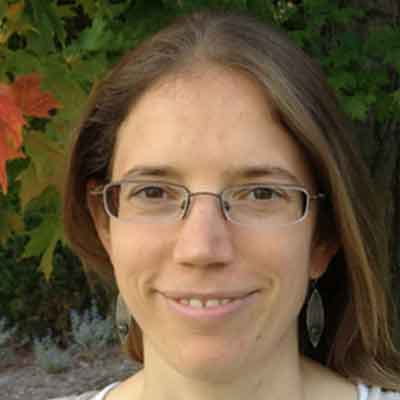
Bianca Moebius-Clune, American Farmland Trust
Bianca Moebius-Clune is the Climate Initiative Director at American Farmland Trust (AFT). Before joining AFT, Bianca served as the founding Director of the Soil Health Division with the USDA-NRCS from 2014-2021. Her program focuses on ensuring agriculture continues to move toward fully functioning healthy soils and systems that sequester carbon, reduce greenhouse gas emissions, and regenerate and maintain resilient, diverse, effective, environmentally, socially, and economically viable production systems on the nation’s varied agricultural lands, in collaboration with partner organizations.
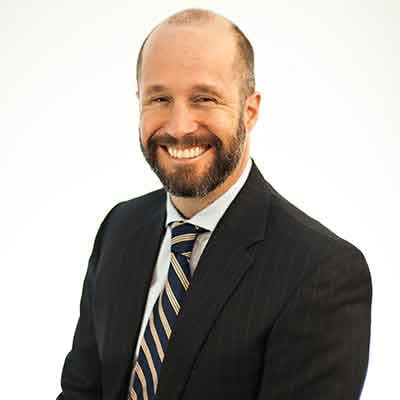
Jeff Williams, New York Farm Bureau
Jeff Williams is the Director of Public Policy team at New York Farm Bureau, the state’s largest general farm advocacy organization. In addition to other duties, Jeff handles much of the environmental portfolio for New York Farm Bureau. Prior to his tenure at New York Farm Bureau, Williams worked in the state Senate for a number of years.
Summit Support


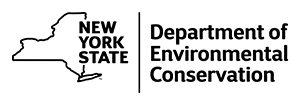
Don’t miss upcoming events!
Stay in touch with with colleagues and learn about upcoming soil health events.